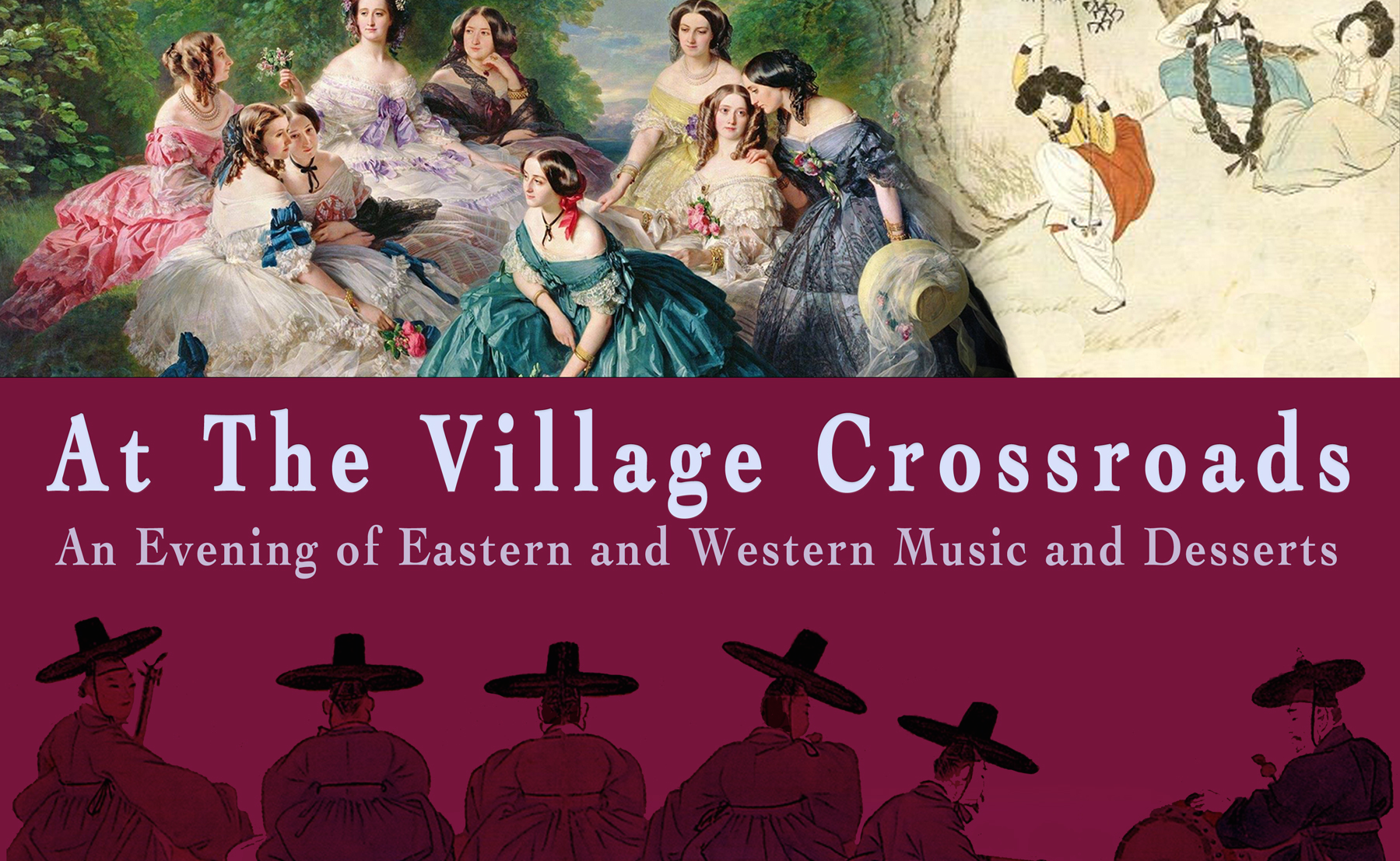Crossroads village is a term that refers to a settlement, primarily in U.S. American history, that was situated where two or more roads would intersect. The owners of farmland along a frequently traveled trail, path, or road, often paralleling a water route, would plan a village where two or three roads crossed. A general store, tavern, and a few other buildings would be erected. Near these villages, the social, commercial, educational, and religious aspects of the emerging society originated and were supported. Crossroads villages provided identity and vitality to the surrounding countryside and a sense of community in the early years of settlement.
Global Village is a concept closely associated with Marshall McLuhan, who popularized it in books such as “The Gutenberg Galaxy” and “Understanding Media”. McLuhan described how the globe has been contracted into a village by electric technology and the instantaneous movement of information from every quarter to every point at the same time, presaging the Internet as an “extension of consciousness” thirty years before the advent of the Internet.
Let us start by noting that in this century the Village has far outgrown its humble origin as the frontier outpost occupying an intersection of routes. The Global Village has now swallowed and contains, within its ever-expanding boundary, a multitude of crossroads. The web of crisscrossing flow of information and diverse cultural memes has become the Village itself. Hence the switching of the order in which Village and Crossroads appear in the title for the program.
If the villagers of the by-gone era were exulting in the notions of unification, harmony and principled cooperation, then the younger generation of this Village may find equal value in diversity, creativity and principled individualism. The dark side of it is, as Homi Bhabha points out, it is now taken for granted that numerous communities exist in the antagonistic, conflictual, even incommensurate state, whether it is due to schisms of ethnic politics, economic inequality, religious conflicts, or cultural hegemony.
While it is important to take pride in one’s own cultural heritage and endeavor to break out beyond its boundary, it is expected for all residents of this Village to strike the delicate balance between mutual respect and seeking positions of strength. In many ways, the state of Massachusetts, and Boston as its center, stand at the forefront of this new and challenging climate.
Historically, when a tribe/nation/civilization encounters the Other, despite its often being accompanied by turmoils and violence, enterprising artists are often the first brigade that braves breaking barriers and defusing the tension. The result: mutual benefits as both sides regenerate through curiosity, imitation, assimilation, mutation and new synthesis. In this context, clarity in recognizing the otherness is often as necessary as is the creative fusion in this Village.
Liminal negotiation of cultural identity across differences of race, class, gender, and cultural traditions: It is in the emergence of the interstices--the overlap and displacement of domains of difference--that the intersubjective and collective experiences of nation-ness, community interest, or cultural value are negotiated. —- How do strategies of representation or empowerment come to be formulated in the competing claims of communities where, despite shared histories of deprivation and discrimination, the exchange of values, meanings and priorities may not always be collaborative and dialogical, but may be profoundly antagonistic, conflictual and even incommensurable?
Homi K. Bhabha, The Location of Culture
A boundary is not that at which something stops but, as the Greeks recognized, the boundary is that from which something begins its presencing.
Martin Heidegger, Building Dwelling Thinking
We believe that KACF’s mission is perfectly aligned with this as its members and supporters all share a first-hand experience living the life on a crossroad. Taking this as the main theme, we did not hesitate plucking from many different trees in preparing this program. In the first piece, titled Village Music by the American composer Michael-Thomas Foumai, such crossroads abound: one between this world and the spiritual one as it is inspired by the Korean Shaman music (Shinawi - 시나위). At the same time, the piece brilliantly employs a cultural crosstalk having three western chamber instruments playing the role of Korean traditional instruments. Finally, it fuses two disparate musical traditions: the Korean and the Appalachian fiddle music as the composer explains. The second piece is a concerto for the 25-string Gayageum. It is an encounter between the soloist Do Yeon Kim and the Hwaum Boston Chamber Orchestra led by Jin Wook Park, a conductor thoroughly trained in the Western idiom. The Hwaum Orchestra then follows with a piece by Dvorak, probably the best known composer who had made the best out of his Slavic cultural heritage, creating several masterpieces that are universally admired. Aside from their own musical merits, Dvorak’s compositions, along with those of Smetana, Janáček, Bartók and the Balakirev Circle, with a gradated mix of nationality and cosmopolitanism, prompt us to think about what it is that pushes beyond its provincial scope to project a universal appeal, and how it is now in this era of youtube and the global cacophony.
But let us leave those hard questions to the composers and performers for now and move on to the final leg of the program: The Musical was born out of successful fusion of several genres: Besides its theater and dancing elements, the music has benefitted from those composers who bravely crossed boundaries among jazz, films, classical and popular music. One of the foremost among them would be Leonard Bernstein. He had voracious appetite for all of life as it reflects on his eclectic musical output that spans symphonies, art songs, masses, film music as well as musicals such as Candide, On the Town and West Side Story (with Stephen Sondheim). The latter is centered on a tragic story of teenage lovers torn by rivalry between two ethnic gangs. Naturally, it is also a brilliant commentary, delivered through groundbreaking fusion of theater, music and dance, on discrimination, social outcasts and immigrants, both in their obstacles and optimistic embrace of America.
Many of us are also in-betweens, and thus understand both challenges and privileges of being in that status. The performers of the program are in-betweens themselves juggling at least two cultures, many of whom also in transition career-wise. In preparing this program, we felt fortunate that not only are we enjoying several styles of music, but also forging collaborations among musicians with such a diverse background and skills. We hope that while enjoying the fruits of their hard work, the audience gain insight on building bridges that connect peoples with disparate perspectives, histories and preferences. Hopefully, we all benefit from broadening our horizon in charting the turbulent cultural water of this era.
Village Music
for Clarinet, Violin and Cello
Michael-Thomas Foumai - Boston Premiere
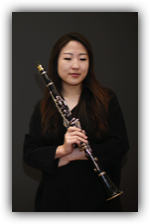
Clarinet
Clarinetist Danby Cho has won a number of prizes including a top prize at the Korea Clarinet Association Ensemble Competition. She was also a winner of PNU's annual concerto competition and performed as a soloist with Pusan National University Symphony Orchestra. In 2013, she was the first place winner at the American Protégé International Competition of Romantic Music, performed at Weill Recital Hall, Carnegie Hall where she was awarded the Judges' Distinction upon the performance.
Recently, she was invited as the artist-in-residence at the Banff Centre and elected to a membership in the national music honor society Pi Kappa Lambda during her study at Boston University. She joined the faculty of Boston University Tanglewood Institute since 2014. She holds a doctor of musical arts degree at Boston University, a Master’s degree from New York University. She had worked with Ethan Sloane, David Krakauer, Esther Lamneck, Larry Guy and Woo-Young Chung. She has appeared as a soloist with the New World Symphony Orchestra in Busan, South Korea, Busan Clarinet Choir and the TV and Radio Symphony Orchestra in St. Petersburg, Russia. She has also performed as a member of various ensembles in Canada, Italy, Japan and in South Korea.
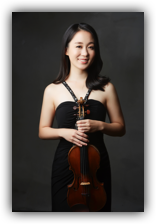
Violin
Recently the second prize and chamber music prize winner of the 2015 Michael Hill International Competition, violinist Eunae Koh made her concerto debut at the age of 9 with the Seoul Symphony Orchestra followed by the recital at the prestigious Kumho Art Hall at 14. and won numerous national competitions including the Sungjung-, Ewha & Kyunghyang-, Korean Chamber Ensemble’s-, and Joong-Ang Music Competitions. In 2010 she was awarded the Seongyong Park Special Prize at the Isang Yun International Competition. Soon after coming to the United States in 2013, she made her U.S. debut performing Brahms’ Concerto in Jordan Hall with the New England Conservatory Symphony Orchestra as the school’s competition winner. Ms. Koh has soloed with the Aukland Philharmonic Orchestra in New Zealand, Yewon Orchestra at Seoul Arts Center, SungJung Philharmonic Orchestra, and both orchestras of Seoul National University. Taking an interest in a variety of projects, she has performed and recorded several new works by Boston composers, appears regularly as guest musician with the Chameleon Arts Ensemble, and is an artist-member of Music For Food -- a musician-led initiative to provide resources for local hunger relief. A serious chamber musician, she worked closely with the Borromeo Quartet in their Bartok Quartets seminar and performed with her New England Conservatory quartet in the annual Jordan Hall chamber music gala concert. Ms. Koh served as concertmaster with various ensembles including the Haffner Sinfonietta, the New England Conservatory self-conducted Chamber Orchestra, the NEC Philharmonic Orchestra under Jeffrey Kahane, and the orchestras of Seoul National University. Ms. Koh is currently pursuing her Graduate Diploma at the New England Conservatory on Abraham Skernick Memorial Presidential Scholarship. She completed her Master’s degree at NEC, Bachelor’s degree at Seoul National University under Donald Weilerstein and Young Uck Kim. Ms. Koh performs on a violin made in 1768 by Pietro Antonio Dalla Costa loaned by the Colburn Collection.
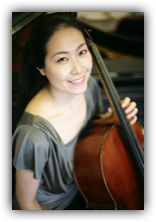
Cello
Hyun-ji Kwon, cellist, earned her Bachelor of Music degree at Ewha Women’s University in Seoul, Korea, and was the winner of the top prize at the Seoul Symphony Orchestra Competition and the third prize at the Seoul Youth Chamber Music Competition. She was the principal cellist for the Ewha orchestra and performed as a soloist with the orchestra in both 2003 and 2004. She earned her Master of Music degree in Cello Performance at NEC in 2008 as well as a Graduate Diploma in 2009. She recently completed the Doctor of Musical Arts degree program in Cello Performance as a student of Rhonda Rider at Boston University’s School of Music. Her teachers include Natasha Brofsky, Il-hwan Bai and Sungwon Yang. She has performed in master classes for renowned cellists such as Natalia Gutman and Anner Bylsma, and she has participated in numerous music festivals and concerts in both Korea and North America. While at BU, Ms. Kwon has frequently performed in joint Faculty/DMA candidate “Chamber Music Masterworks”, and was awarded special String Department Honors upon graduation. Recently, she performed as guest alumna along with the celebrated Muir Quartet and violist Michelle LaCourse at BU’s Tsai Center. She serves on the cello faculty of BU’s Tanglewood Institute during the summer months and maintains an active schedule as teacher and chamber player.
Composer’s Commentary on Village Music
Michael-Thomas Foumai
Composer
Inspired by storytelling, Hawaii-born composer Michael-Thomas Foumai describes his music as using many forms of musical language to construct a compelling musical experience and journey. He has been the recipient of a Fromm Foundation Commission, Presser Foundation Award, 2013 American Prize, Sioux City Symphony Composer of the Year, 2012 Jacob Druckman Prize from the Aspen Music Festival, three BMI composer awards, 2014 Intimacy of Creativity Fellowship at the Hong Kong University of Science and Technology, 2013-14 Music Teachers National Association Composer of the Year, was selected by Maestro Lorin Maazel as winner of the Composers Competition at the Castleton Festival and served as the inaugural Kaplan Fellow in Composition at the Bowdoin International Music Festival in 2015 among others.
Upcoming performances this season include four orchestral premieres: The Spider Thread with the American Composers Orchestra at Carnegie Hall, Music in the High Castle with the Raleigh Civic Chamber Orchestra, the anime-inspired Fullmetal for the Iowa State Symphony and a Hawaiian-mythology triptych Children of Gods for the Hawaii Youth Symphony. Recent works include Village Music composed for Music from Copland House, Becoming Beethoven for the Portland Symphony Orchestra and The Fantastic Voyage inspired by the Hōkūleʻa Voyage for the Royal Hawaiian Band.
Previous performances have been presented at the American Composers Orchestra's Underwood New Music Readings, Cabrillo Festival of Contemporary Music, Milwaukee Symphony Composer Institute, The Juilliard School, Curtis Institute of Music, Osaka College of Music (Japan), Shanghai New Music Week (China), Yogyakarta Contemporary Music Festival (Indonesia), Intimacy of Creativity in Hong Kong, Hawaii International Film Festival, Thailand International Composition Festival, MidWest Composers Symposium (Cincinnati), Daegu Contemporary Music Festival (Korea), Fresno New Music Festival, Aries Composers Festival (Colorado), June in Buffalo Festival, Wellesley Composers Conference, Mizzou New Music Festival, Aspen Music Festival and School, Staunton Music Festival (Virginia), EarShot New Music Readings (Buffalo, NY) and the Calarts Theatre (REDCAT) at Disney Hall.
In 2015, Momentum 21: Music for a New Century was released on Albany Records and featured the Shakespearian-inspired Lady Dark performed by the Indianapolis Chamber Orchestra conducted by Kirk Trevor. Other recordings include In Paradisum on Born and Raised performed by guitarist Ian O'Sullivan and Auld Lang Syne Fantasy by the Royal Hawaiian Band. A fourth-coming recording by the Royal Hawaiian Band featuring Spiritus Mundi will be released in the 2015-16 season.
Dr. Foumai holds degrees in composition from the Universities of Hawaii (BM) and Michigan (MM,DMA). He has worked with Christopher Rouse, Augusta Read Thomas, Robert Beaser and Steven Stucky. His primary composition teachers have been Bright Sheng, Michael Daugherty, Syd Hodkinson, Paul Schoenfeld, Erik Santos, Peter Askim, Byron K. Yasui, Donald Reid Womack, Takeo Kudo, Thomas Osborne and has worked closely with Derek Bermel. Dr. Foumai currently serves on the faculty of the University of Hawaii at Manoa where he teaches composition and theory.
Gayageum Improvisation
Do Yeon Kim
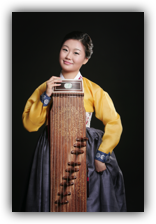
Gayageum
Do Yeon Kim graduated from National Traditional Music High School in Korea and the Colloge of Music, Seoul National University. She is currently pursuing Master’s Degree in the Contemporary Improvisation at New England Conservatory.While in Korea, she won numerous awards including the Silver (08) and Gold (09) prizes at Dong-A Traditional Music Contests, Grand prize (’11) at the National College Gayageum Contest, Gold prize (’11) at the National Center for Traditional Performing Arts Contest, Silver prize (’13) Wooreuk Gayageum College Nationwide Contest. Since 2008, she has widely performed both in Korea and in the US. Most recently, John Zorn’s famed venue The Stone in New York City (’14), Museum of Fine Arts in Boston (’15), Hildegard Concert in Jordan Hall, NEC (’15). She also gave lectures on Korean music as part of the Brandeis University’s World music class (’15) , Emanuel College, Boston and also at Seoul National University. More recently, she also performed as a member of the group DoJo in Korea and Boston.
Oyuwa (어유와)
Concerto for 25-string Gayageum
류건주 (작곡)
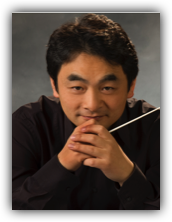
Conductor
Conductor and violinist Jinwook Park has performed both as a violin soloist, and as a member of numerous orchestras in Korea and the United States. An active chamber musician, he was invited by the Jamaican government to perform a recital in Kingston. He also served at the Aspen Music Festival under Kurt Sassmannshaus. He serves as the conductor for, Hwaum Boston Chamber Orchestra, the Boston Korean Chorus and the Haffner Sinfonietta which he founded with a vision to transform the classical music tradition into an educational experience accessible to all. A passionate advocate of cultural exchange, his work with Hwaum Boston Chamber Orchestra and Boston Korean Chorus allow him to bridge Korean and American communities. He received Bachelor of Music from Busan National University before moving to Boston to pursue Master of Music at The Boston Conservatory where he studied on a full scholarship with David Kim, the concertmaster of the Philadelphia Orchestra. He has also studied at Boston University, working towards a Doctor of Musical Arts in Performance.
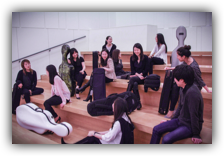
Hawum Boston Chamber Orchestra (Director - Sooihn Sue Chang, Conductor - Jinwook Park), founded in 2013, is composed primarily of young professional Korean musicians from the Greater Boston area. The orchestra aims to bring harmony to the community with a vision to serve as a bridge between the Korean and American communities. Its primary mission is to support charitable events through musical performances. By working hand in hand with local musicians, Hwaum also strives to create an environment that helps foster the professional development of bright new talents.
Scenes from American Musicals
B2B Theater Company
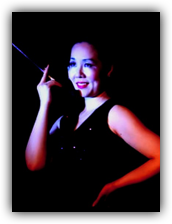
Heather Lee performed in Ruth The Musical as Naomi (KCB), K-Pop Night(KCB) and participated in Hair as the vocal coach (The Longwood Players, MA), as well as in Cinderella, Snow White The Musical, and Pipin as the director. She took on various roles in other concerts: The Yodler as director (the Alpin Rose Yodel Club, Korea), Harvard International Night, Harvard Commencement Concert, Harvard annual Christmas Concert, Handel Society Annual Concerts, Haydn Society Annual Concerts, Annual Summer Concert Series of the Alpin Rose as a member of performers. She has a ScD in School of Public Health from Harvard University.
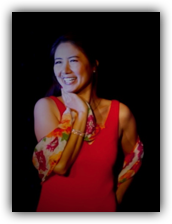
Jina Jung has a Master’s degree in vocal performance from Boston Conservatory. She appeared in the musical “Jesus Christ Super Star (Maria)”, “Beauty and the Beast, Swing" (Bell, Barbette) as well as highlight shows of “The Phantom of the Opera (Christine)", "Grease, (Sandy)” among others. She also performed as a member of KBS broadcasting. She won a Korean National Drama Award for Best New Actress. She is currently the director of Boston Korean Musical Singers.
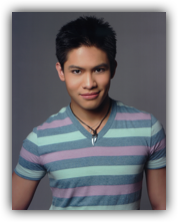
Shannon Ignatius is a senior at Berklee College of Music. He has performed in the productions of The Moon Princess (Luna-Hana Theatre Company), Legally Blonde (Arlington Friends of the Drama), Cabaret (Berklee Performance Centre) among others.
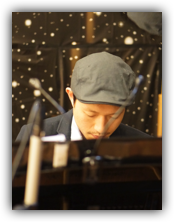
Kyumin Shim, a young jazz pianist of both sensitivity and swing, started out at the prestigious Seoul Institute of The Arts (SITA) in Korea on a scholarship as a prize winner in its Jazz Music Competition. Since 2009, he has studied at Berklee college of music on a scholarship. He moved on to New England Conservatory and obtained the Master of Music degree. Over the years, his mentors/collaborators included Jazz luminaries such as Joanne Brackeen, Danilo Pérez, Ed Tomassi, Hal Crook, Dave Santoro, Alain Mallet, Fred Hersch, Jason Moran, Jerry Bergonzi and Ken Schaphorst. He is in demand both as a soloist and as pianist of various ensembles at festivals such as the Newport Jazz festival(10), Club Rex in Toronto, Montreal Jazz Festival(11’, 13’), and the Jazz Festival at Martha’s vineyard. In the Boston area, he performed at Wally’s jazz cafe, Regatta bar, Lily pad as well as at Smalls jazz club, Shapeshifter lab and Jazz Gallery in New York.
